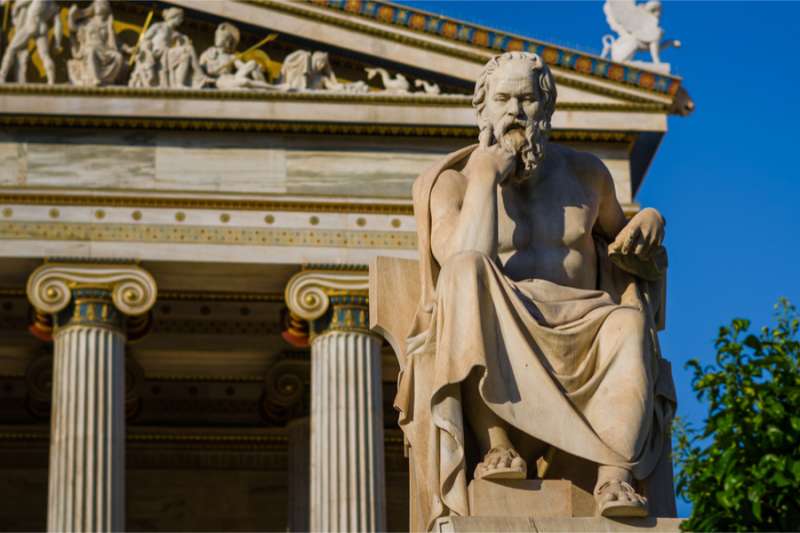A classical education forms the whole person, leading students to truth and mitigating the influence of internet culture, according to one speaker at a Catholic classical education conference held this week.
The National Catholic Classical Schools Conference is sponsored by the Institute for Catholic Liberal Education and conducted July 23-26 at the Catholic University of America in Washington, D.C. Speakers include priests, classical educators, and academics from Catholic universities and colleges.
Unlike standard academic programs, a “classical” school focuses on memorization, close study of primary-source “great books” and the liberal arts, rather than using conventional text books. The trend of classical education has become popular among some Catholics in recent years.
Dr. Jake Noland, dean of faculty at St. Thomas More Academy in Raleigh, North Carolina, spoke to attendees July 25 about the role a classical education can play in forming children and young adults in faith, character, and intellect.
“Jesus Christ, our Lord, is the truth, and the truth will set you free. This reading is what classical education is all about.”
Noland told the audience that, while the truth does set people free, it is important to prepare students to fruitfully receive truth. That, he explained, is the important role a classical education can play.
"We are in the business of forming young people to embrace the fullness of Christ in their particular vocations." This is especially important today, as many cultural factors draw children away from this particular path. Noland cited the ubiquity of smartphones with internet access as especially harmful to the emotional health and well-being of teens, whom he referred to as the “iGen,” a termed coined by psychologist Jean Twenge.
The members of the iGen, born between 1995 and 2012, are far less religious, more morally neutral, more likely to question marriage, and less likely to get married than previous generations, according to Twenge’s data. They are also likely to remain at home, living with their parents, longer than previous generations.
A way to form the iGen, Noland suggested, is with the coherence and logic offered by the classical curriculum. The iGen “needs a new set of stories” to help form them as adults capable of engaging in “functional and fruitful relationships.”
“This will also strengthen the love of truth.”
Noland explained that "truth is real and matters,” and students are more likely to embrace it when it is presented in a consistent and coherent matter, and when “authority can be relied on as trustworthy."
In a classical Catholic model, reliance on scripture and a lived faith is also key, Noland said, recognizing that ignorance of scripture is “ignorance of Christ.”
While Noland said that daily Mass may not be feasible for every school environment, when it is celebrated it should be the “centerpiece” of a school, and not considered an optional extra.
One conference attendee, Jocelyn Paul, the director of classical education and a teacher at the newly-opened Martin Saints Classical High School in Oreland, Pennsylvania, told CNA that she was first drawn to the classical education model when she was in college.
She said that participating in her university’s great books program “was like a conversation had been going on for centuries, and I got to be part of it now.”
The conference offered a rare opportunity for Paul and other classical educators to meet, compare notes, and share what was and was not working in their classrooms.
“As teachers, we're so busy, so we don't often have time to sit down and talk about what it means to be a witness to Christ, and how can we lead our students into a deeper love and sense of wonder about God, about the world around them.”
“So this conference kind of carves out the time to do that."
David Stiennon, board president of St. Ambrose Academy in Madison, Wisconsin, offered similar sentiments.
Stiennon admitted he had “no idea” what classical education was when he was asked to serve on the school’s board, apart from that the students “wore uniforms and studied Latin.”
He said attending the conference was a way to hear “the miraculous things that are happening” among attendees, “who are totally transforming their schools for the betterment of the students."

